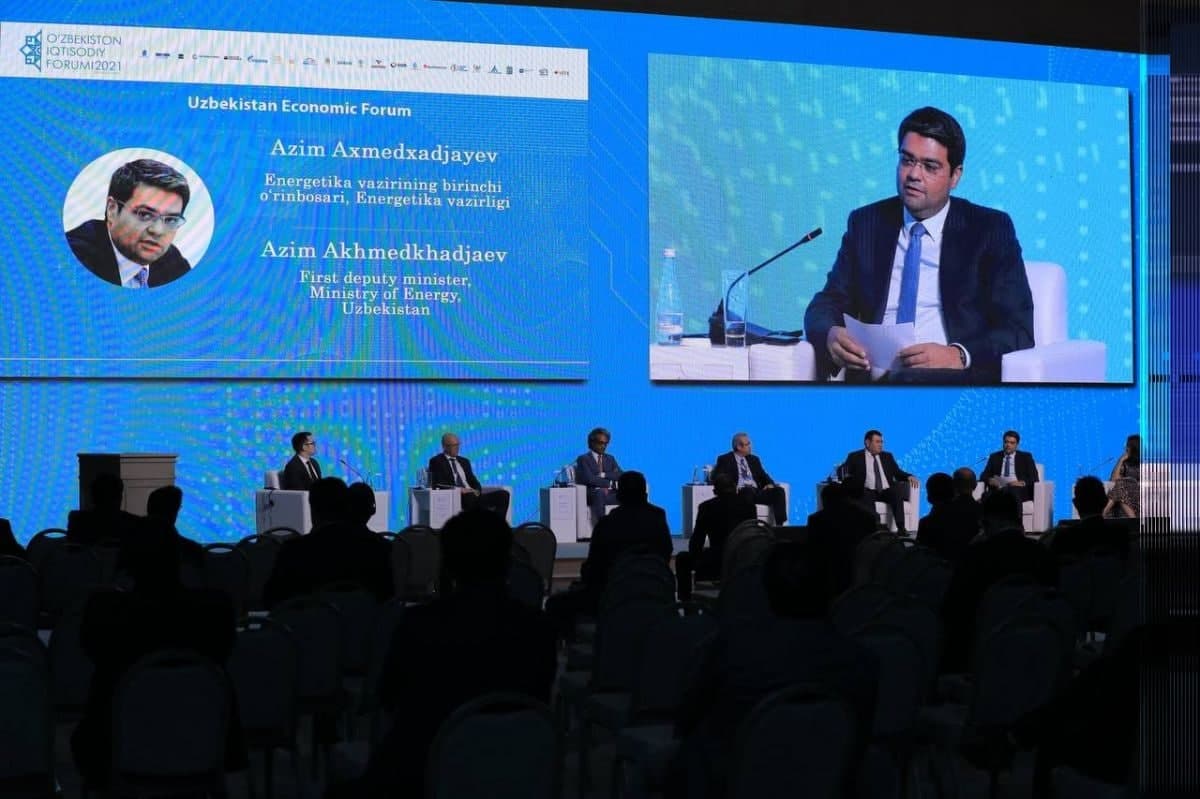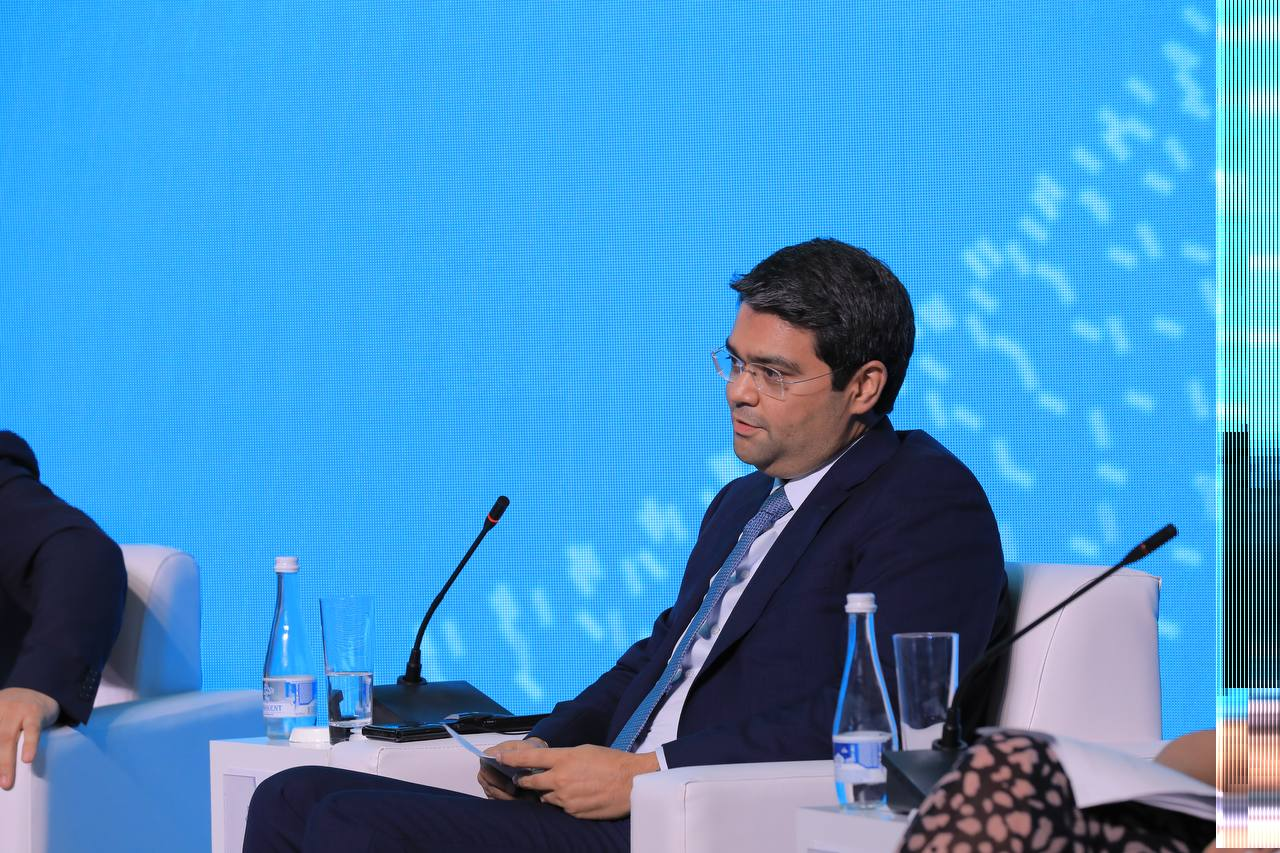
Tashkent, Uzbekistan - October 1, 2021 - Growing integration of national energy systems across the five nations of Central Asia is helping to ease congestion and power outages arising from peak power usage, Azim Ahmedkhadzhayev, Uzbekistan’s First Deputy Minister of Energy, has said.
Addressing the Tashkent Economic Forum Friday (September 30), Mr. Ahmedkhadzhayev said increased regional cooperation over the past five years was making joint investment projects possible. He cited as an example Uzbekistan’s continuing construction of high-voltage power lines linking its power grid to those of its neighbours.
“Regional integration in the field of energy will allow the development and implementation of investment projects that will serve not only the good of the host country through energy generation, but will also benefit neighbouring countries by covering peak overloads as a result of coordination and interconnections of energy systems,” he said.

He noted that Uzbekistan’s geography, at the centre of both Eurasia and Central Asia, made it a convenient location as a strategic and geopolitical hub. A significant factor was existing infrastructure linking Uzbekistan with all its neighbours, he said, pointing out that the energy systems of Kazakhstan, Kyrgyzstan, Tajikistan and Turkmenistan have long been guided by a control centre located in Tashkent, even since the breakup of the Soviet Union.
Mr. Ahmedkhadzhayev outlined the steps Uzbekistan has been taking to achieve energy security and expand production, including reforms intended to double power generation by 2030, with 25 per cent to be derived from renewable sources. The process began with the formation of the Ministry of Energy and the restructuring of Uzbekenergo, the state-owned energy provider from which a series of stand-alone specialist enterprises have been created.
He listed a series of laws, decrees and presidential resolutions which have introduced market principles into the system, allowing private companies, including several international firms, to enter the market.

The First Deputy Minister, appointed recently after serving as Deputy Governor of the Jizzakh Region, also discussed major efforts to expand the pool of energy industry specialists in Uzbekistan, through expanded educational programs. He listed investments by ACWA Power of Saudi Arabia and Air Products and Chemicals, Inc. of the United States into a special curriculum and training program at Shirin Power College, a specialist institution located near the Syrdarya Thermal Power Plant and Farkhad hydroelectric station, and a Memorandum of Agreement signed recently between Germany’s Siemens and Tashkent State Technical University.
A new generation of home-grown specialists educated to international standards is expected to bring enthusiasm and expertise required for implementation of new vision in the field of exploitation of the country’s natural resources.
“The Republic of Uzbekistan in all sectors is moving from the export of raw materials to the export of finished products,” he said. “We have sought to develop clusters and deepen gas processing. A good example would be the GTL (gas-to-liquids) project, which has already been completed and will be launched at full capacity in the coming days. We have also committed ourselves to developing the MTO (methanol to olefins) cluster in the Bukhara region.”












